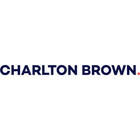Diploma of Information Technology
Diploma of Information Technology
Our Diploma of IT provides the skills administer and manage IT infrastructure – from basic desktop support, to networking, to hardware, purchasing, planning and even software development – all in support of small-to-medium enterprises (SMEs). About this Course: Use technology to make great things happen with a Diploma of Information…
Categories
COURSE DESCRIPTION
Our Diploma of IT provides the skills administer and manage IT infrastructure – from basic desktop support, to networking, to hardware, purchasing, planning and even software development – all in support of small-to-medium enterprises (SMEs).
About this Course:
Use technology to make great things happen with a Diploma of Information Technology. This course teaches students to use information technology for general work and multiple specialised fields of their choosing. Students will choose their electives from 7 specialisations; Networking, Programming, IT Support, Web Design and Development, Digital Games, Digital Media Technologies, and Project Management. Electives in these specialisation teach students general skills and common industry workflows. The course structure ensures graduates are capable of working across multiple specialisations.
What You’ll Learn:
Learn common industry workflows
Networking
Programming
IT Support
Web design and development
Digital games
Digital media technologies
Project management
Career Outcomes
•
IT ADMINISTRATOR
•
DEVELOPER
•
NETWORK ENGINEER
•
INFRASTRUCTURE DESIGNER
•
IT MANAGER
REQUIREMENTS
AGE
Minimum age of 17 years or turning 17 years old prior to commencement of the course
EDUCATION & EXPERIENCE REQUIREMENTS
Year 11 Australian Senior High School Certificate, or equivalent (e.g. completion of Year 12 or High School in the students home country) with full academic results.
ENGLISH LANGUAGE
Upper-Intermediate English (equivalent to 6.0 academic or general IELTS) or successful completion of college LLN Test
REQUIRED IDENTIFICATION
Photo ID and evidence of citizenship (international students must provide copy of passport)
COMPUTER SKILLS & EQUIPMENT
Students on this course require computer access for learning purposes and to complete course assessments. As such, learners must have beginner/intermediate computing skills including use of Microsoft Office programmes, in addition to hardware requirements of a desktop or portable computer with keyboard, pointing device, speaker, web camera and microphone, and a broadband internet connection.
ADDITIONAL REQUIREMENTS
Specific Updates to English Language Requirements for Student Visas: General Student Visa: The minimum IELTS score has increased from 5.5 to 6 (or equivalent). Packaged ELICOS: The minimum IELTS score to undertake a packaged English Language Intensive Courses for Overseas Students (ELICOS) program has increased from 4.5 to 5.0.
FURTHER INFORMATION
Students who are unable to meet the academic or English language criteria may in some cases be eligible to undertake our Language, Literacy & Numeracy (LLN) test. Criteria may change at any time without notice. Additional English language requirements may apply to international applicants from non-English speaking backgrounds wishing to articulate on a visa package into a university programme. Students must be able to (and are required to) enrol, participate, demonstrate progression-of, and complete this course.
EDUCATIONAL INSTITUTION
As the winner of the International Training Provider of the Year award at the Australian Training Awards in 2015, Charlton Brown has built a proud reputation over the past 30 years for providing high quality community services education and qualifications for international students. Community services qualifications at Charlton Brown provide the ideal balance between the latest theory and essential practical skills to ensure graduates are well prepared for their new career in the service of their communities. Through industry experienced and highly qualified trainers and assessors, Charlton Brown provides students with the best available learning experience through intentionally small class numbers in their modern Brisbane and Sydney campuses.




